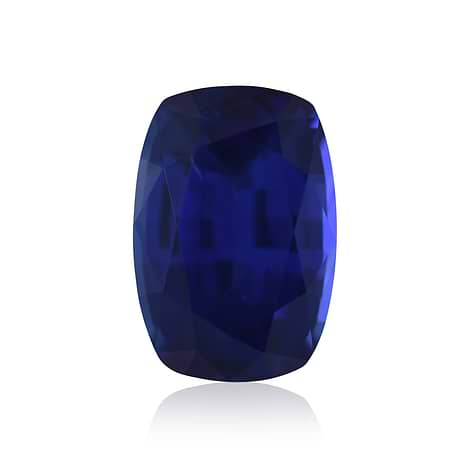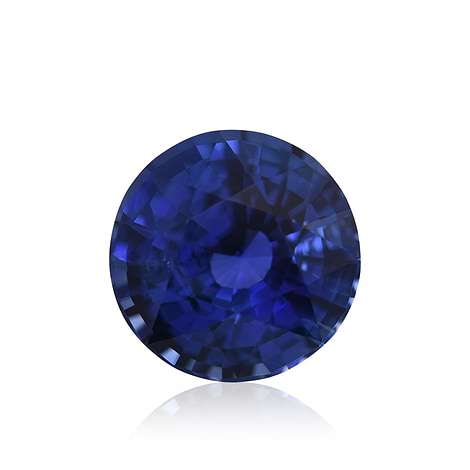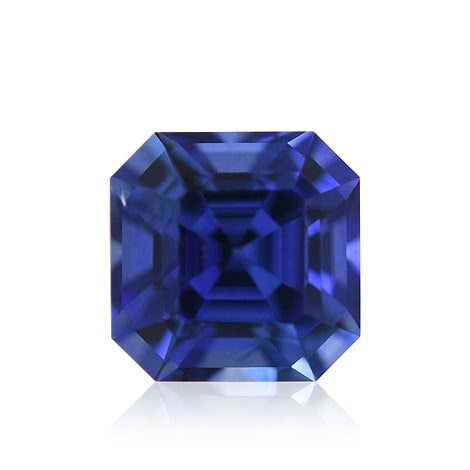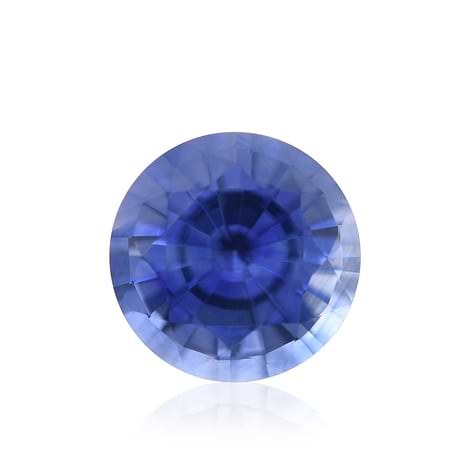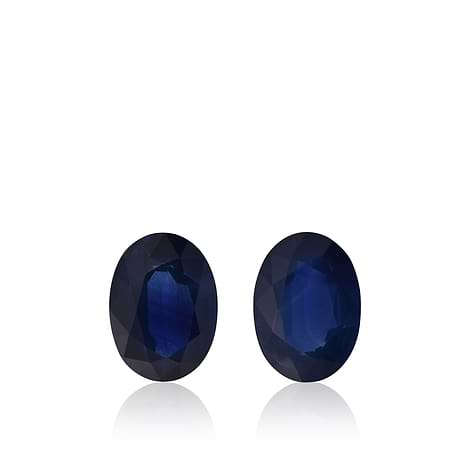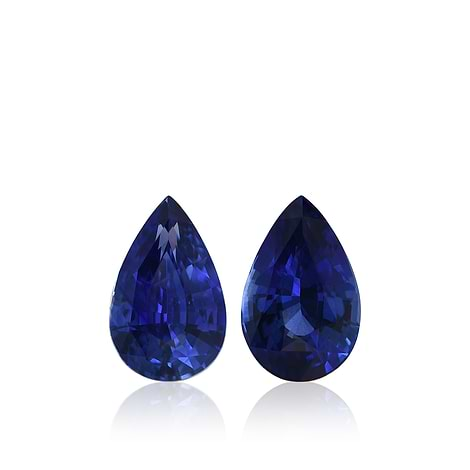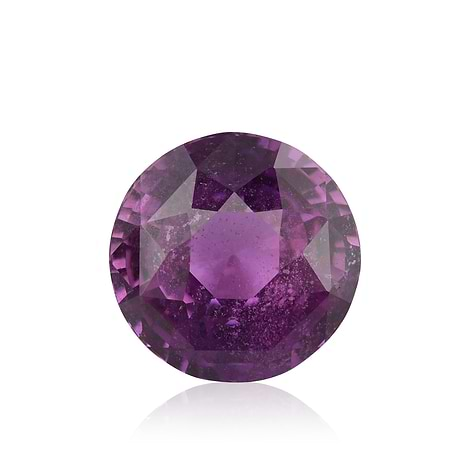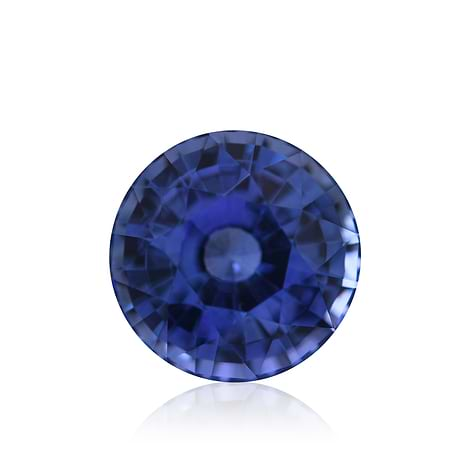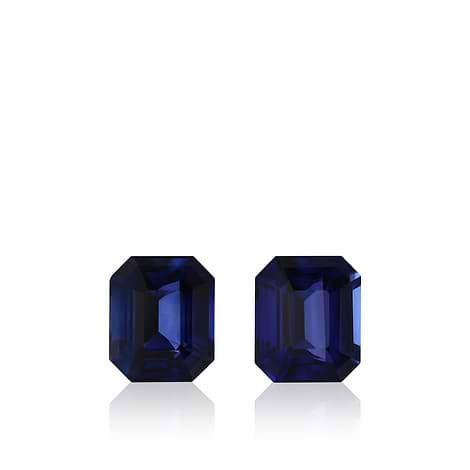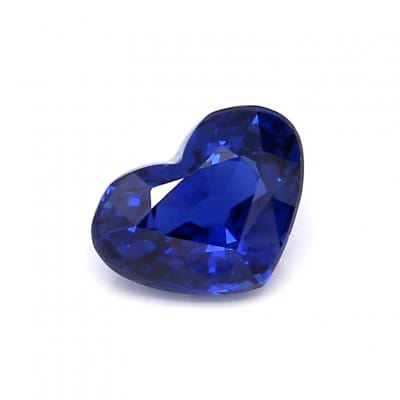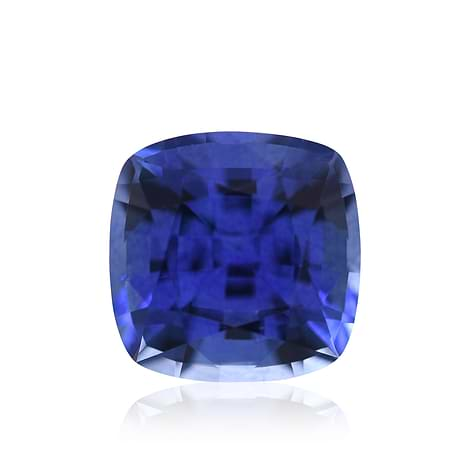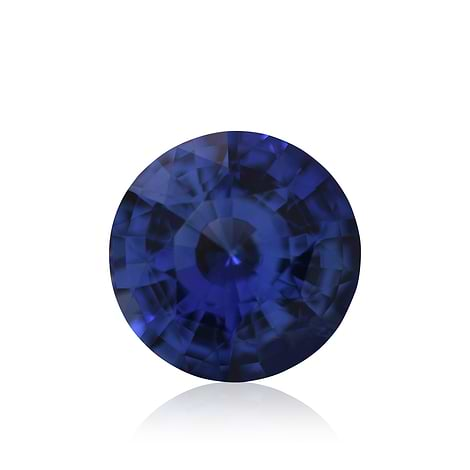Our marvelous planet has gifted us with many mesmerizing specimens, otherwise known as gemstones, which are rich in color, texture, and shine. Sapphire gemstones are among the most coveted precious gemstones, which is quite understandable given the rainbow of colors in which they come and the endless possibilities they present.
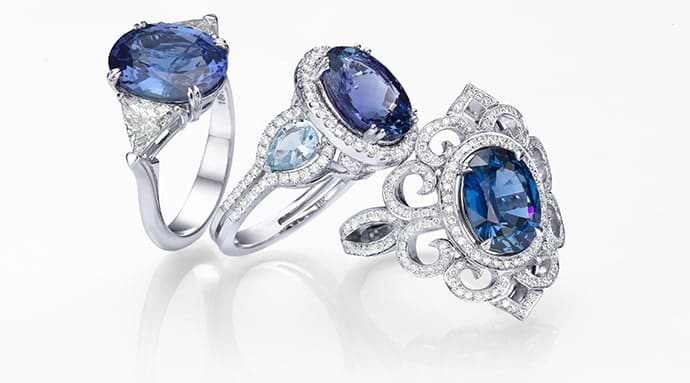
Some of LEIBISH's Sapphire rings
What are Sapphires?
Sapphires are One of the Four Precious Gemstones. The terms stones and gemstones are thrown around quite a bit, but for the most part, while almost all gemstones originate from some mineral (besides from rare exceptions like pearls), not every stone is a gemstone, which is used almost interchangeably with the term precious. This is because some are considered more precious than others and only a select few in the category of precious gemstones.
To be clear, the separation between precious and semi-precious is actually not used any longer. Still, many differentiate between the two groups.
A stone becomes a gem once it has been transformed from its rough mineral form into a cut and polished jewel. The most lavish gemstones on the planet, diamonds, emeralds, rubies, and sapphires, fall into what was called precious gemstones. All other gemstones are referred to as semi-precious. Some are far less valuable than precious gemstones while others can cost quite the pretty penny.
Sapphires are the gemstone variety of the corundum mineral. The red sapphire variety is called a ruby. Sapphires are mined, and they are also manufactured for decorative purposes. These stones measure 9 on the Mohs scale in terms of hardness, making them the third hardest gemstone after diamonds and moissanite respectively. Diamonds rank 10 whereas moissanite ranks 9.5. They are therefore also used for non-decorative uses such as for infrared optical components.
How Are Sapphires Formed?
Sapphires are formed under the earth’s surface over millions of years. They are the result of several processes, which include high temperatures and pressure. These are the ideal conditions for metamorphic processes in which sapphires are formed. When liquid magma found deep within the earth cools, it allows the minerals to crystalize. The finest and purest forms of corundum, otherwise known as sapphires, are these very minerals that have been recrystallized during this process that has taken millions of years.
A sapphire is a mineral but it is not diamond even though a diamond is a mineral as well. They are both different types of minerals. Sapphires are a variety of the mineral corundum,which is an aluminum oxide. Various elements found within the sapphires cause different hues. For example, iron causes blue, titanium causes yellow, and chromium causes purple.
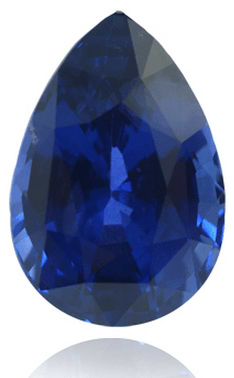
LEIBISH 8.54 ct deep blue sapphire
Where do Sapphires Come From?
Sapphires are mined in locations around the globe but are mainly sourced from Cambodia, Colombia, India, and Kenya. Other areas include Afghanistan, Australia, Nepal, the United States, and Vietnam. The sapphires from the various regions differ from one another in terms of their chemical structure and appearance.
Sapphire Quality Assessment
Most people know that a diamond is assessed based on four main categories better known as the 4Cs, which stand for color, clarity, cut, and carat weight. These are used to assess colored gemstones albeit quite differently.
For starters, while color, cut, clarity, and carat are all looked at in an equal manner when discussing colorless diamonds they are not dealt with in this fashion when grading sapphires. The main reason for this is that the color of a sapphire takes absolute precedence over everything else. We aren’t looking at the absence of color like we do with colorless diamonds but at the presence of color. This puts it at front and center in such a way that we don’t just look to see which color it is, but what secondary colors are present, how intense the color can be seen, and how dark or light the stone is. In official terms, the color, tone, and saturation of a sapphire take priority over all other aspects including clarity, carat, and cut.
Furthermore, while high-quality sapphires are preferred, the quality is not assessed in the same way it is for a diamond. Inclusions can be present within a sapphire and it can still be considered extremely valuable. It all depends on where the flaw is found, how visible it is, and whether or not it can be seen minimally compared to the overall color and appearance of the stone.
Although a sapphire’s color is its most important feature, the cut is a close second. This is because the way in which a sapphire is cut affects its color directly. Therefore, the center of a sapphire must be cut in a way that it reflects light and color. When the center of the stone is dead and does not reflect light or color, it is known as a window. Sapphires with large windows will be sold for lower prices whereas stones without windows that have full color and light reflection will sell for a higher value.
Lastly, a sapphire can be found in larger sizes, but the bigger the stone, the smaller the chances of it being a quality gem. Thus, the larger and higher quality stone you come across the rarer, and the more expensive it will be.
Are sapphires rare?
Stones known on the market as sapphires are not incredibly rare, however, untreated sapphires of high quality are extremely hard to come by. This is because most sapphires that are mined are of such poor quality that they never enter the gem trade to begin with. Among those stones that do make it into the trade, most are treated in some way or another. Sapphire sources are limited because of several reasons. If the mine is not profitable enough, it won’t be mined altogether. Additionally, if the source is located in a controversial area, it will be avoided and thus becomes null.
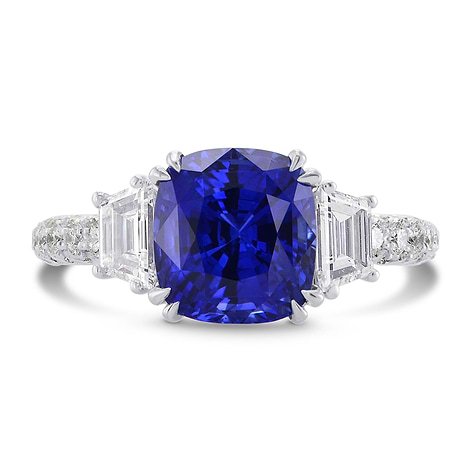
Sapphire Meanings and History
Sapphires were discovered thousands of years ago. They date all the way back to the First Temple, 957 BCE, as the sapphire was one of the twelve precious stones used in the High Priest’s breastplate. It is unknown who was the first person to discover sapphires.
Today sapphires are mined in countries around the world. Some of these countries include Afghanistan, Cambodia, India, Colombia, Nepal, Kenya, Australia, Vietnam, Tanzania, and the USA, as well as others. In addition to making beautiful additions to any piece of jewelry, sapphires are used to create high durability windows, wristwatch crystals and movement bearings, and can also be used for electronics.
Sapphires Prices
How much does a sapphire cost?
A sapphire can cost anywhere from $20 a carat to $450 a carat to hundreds of thousands of dollars. It truly depends on the quality of the stone, whether or not it has been treated, its colors, its cut, its size, and its shape. A tiny yet high quality sapphire can cost ten times the price of a much larger stone. Therefore, each and every sapphire needs to be regarded and surveyed individually.
Which sapphire is the most expensive?
Deep blue sapphires of high quality tend to sell for the highest prices although flawless pink and yellow sapphires have been known to bring in quite the pretty penny as well. In terms of the most expensive sapphires ever sold at auction, there are several stones that saw prices in the millions. These include the Richelieu Sapphires, which sold for $8,358,520 and an unmounted Burmese sapphire that brought in $7,223,285
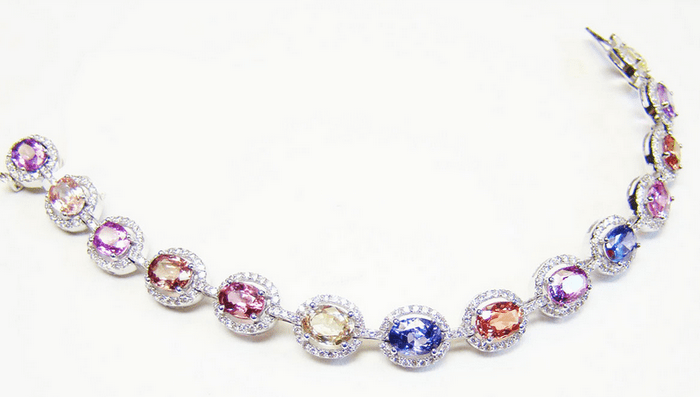
Sapphire Colors
Known mostly for their blue variety, including the luxurious Royal blue sapphire, sapphires appear in an array of colors, including pink, orange, yellow, green, purple, colorless, and black. These stones make fabulous alternatives to their pricier color diamond counterparts, although some types of colored sapphires can be quite costly as well. That is one of the most attractive aspects of a sapphire; the many color choices.
Color-Changing Sapphires
Aside from the different colored sapphires, there are several unique types of sapphires that are singled out from the rest. One such type is the color-changing sapphire. Like its name suggests, this unusual sapphire displays different colors when it is exposed to natural lighting and artificial lighting.
Which sapphire is the best, blue or yellow?
The word sapphire and the color blue basically go hand in hand, so it is safe to say that blue sapphires are among the most popular varieties of sapphires. Having said that, yellow sapphires have become quite popular, especially since they are a cheaper alternative to the lovely yet pricey yellow diamond.
Different Types of Sapphires
Genuine, unheated sapphires have the highest demand and, like diamonds, are found in nature. Synthetic Sapphires created in labs exist due to the rarity and high cost of real sapphires. Natural or rather unheated Sapphires are found in several colors, blue being the most recognized and popular color. Other colors include yellow, purple, orange, pink, brown, and green. There are also colorless sapphires, which can be used in place of diamonds due to their similarities. Sapphires displaying a combination of colors exist as well.
What is a star sapphire?
An additional special kind of sapphire is the star sapphire. As a result of the imperfections within the stone, the sapphire can display an asterism, which resembles a star, hence the name. Star sapphires are in a category of their own due to this unique feature. Such sapphires are incredibly rare and highly sought after. There are star rubies as well.
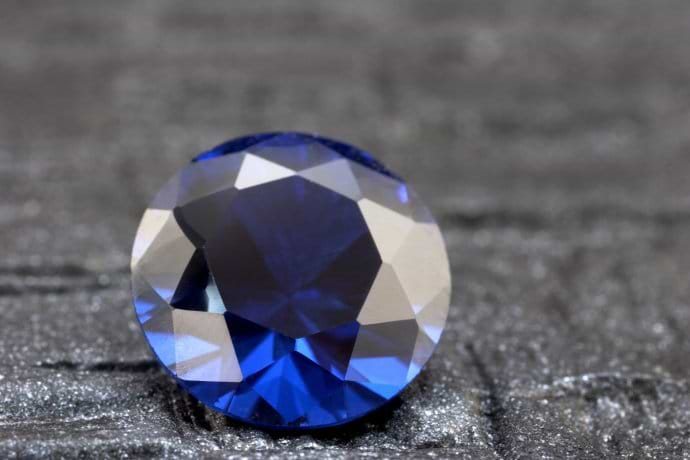
The Blue Sapphire
Sapphire Ruby
Is a ruby a sapphire?
The simple answer to this question is no. Though rubies are the red form of corundum, as sapphire is the blue form and padparadscha is the pinkish-orange form, they are known by different names.
It is imperative to point out that two of sapphires and rubies share the exact same scientific structure. That means that a sapphire and ruby are actually the same type of stone. The only significant difference is that rubies have an exquisite red color. The ruby’s unique color was enough to make it defined as a gemstone of its own, but aside for the element that causes the red color, the two stones have the same gem structure. Only rubies with a strong red color are considered rubies while the lighter stones are known as pink sapphires.
Sapphire Birthstone
The classic sapphire birthstone is blue, but the birthstone refers to all sapphires, leaving one to choose from an array of alluring sapphire colors. One with a sapphire birthstone can elect to wear a blue sapphire, green, yellow, brown, or pink. That is one of the most attractive aspects of a sapphire; the many color choices.
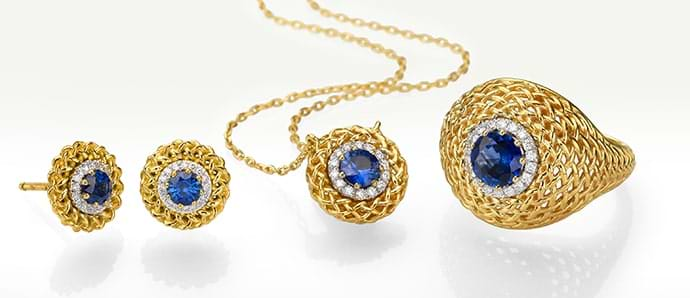
Sapphire's set in yellow gold
There is no denying the incredible beauty of a sapphire, whether it is blue, yellow, or colorless. This highly durable substance available in a plethora of breathtaking colors makes for an irresistible jewel perfect for any piece or occasion.
Like everything in life, there is always compromise and like everything else, different things appeal to different types of people. So unless you are adamant and insist on getting the largest, highest quality sapphire with the best color and are able to afford it for that matter, it is recommended to think carefully what matters most to you. Is it the size? The color? The shape? The quality? The larger a stone is, the more chances of it having inclusions. On the other hand, smaller stones are more likely to have fewer flaws. Therefore, if you want the best of both worlds you will need to be ready to pay the price.
Other questions may involve the stone purchasing process, dos and don'ts, and what to look out for. Always make certain you are purchasing from a reputable business and try to take someone knowledgeable with you for backup.
